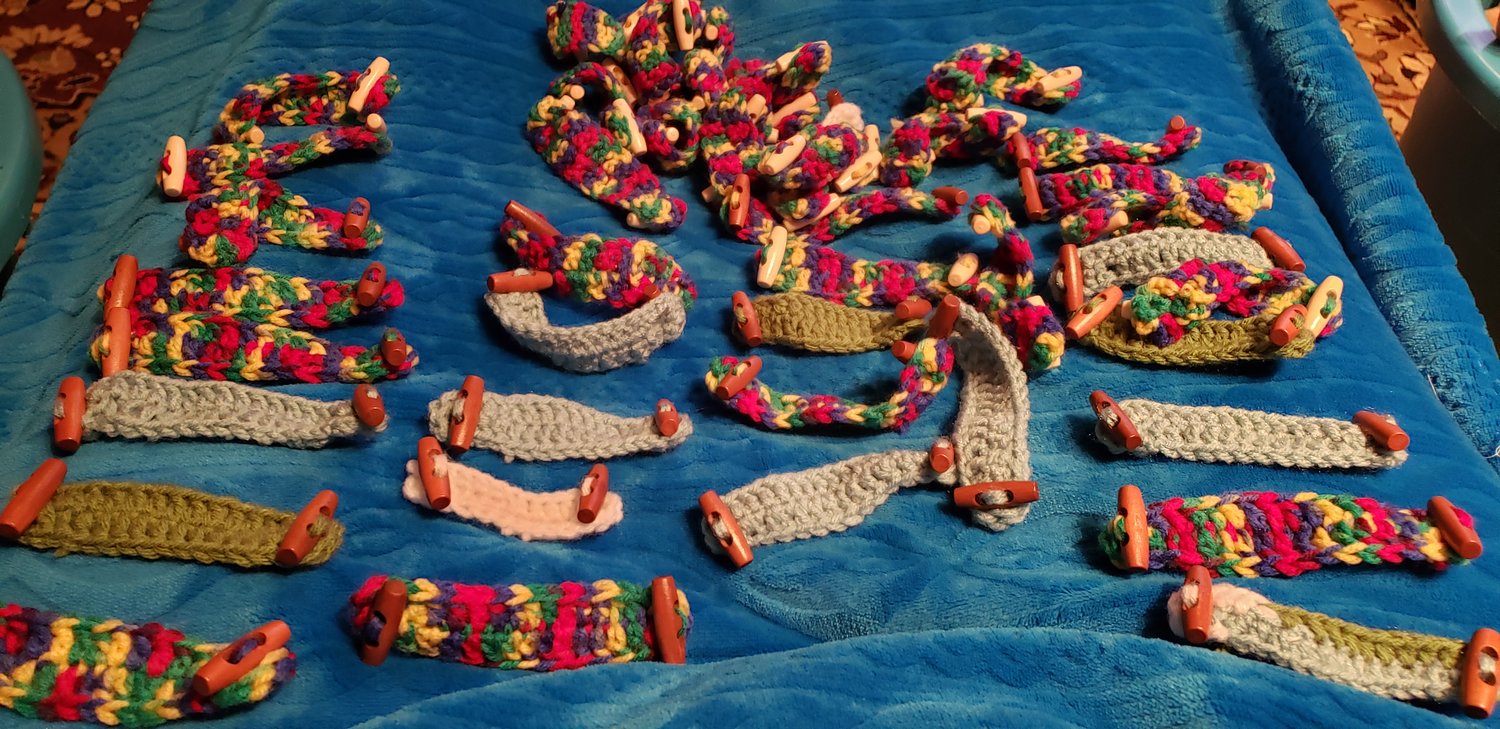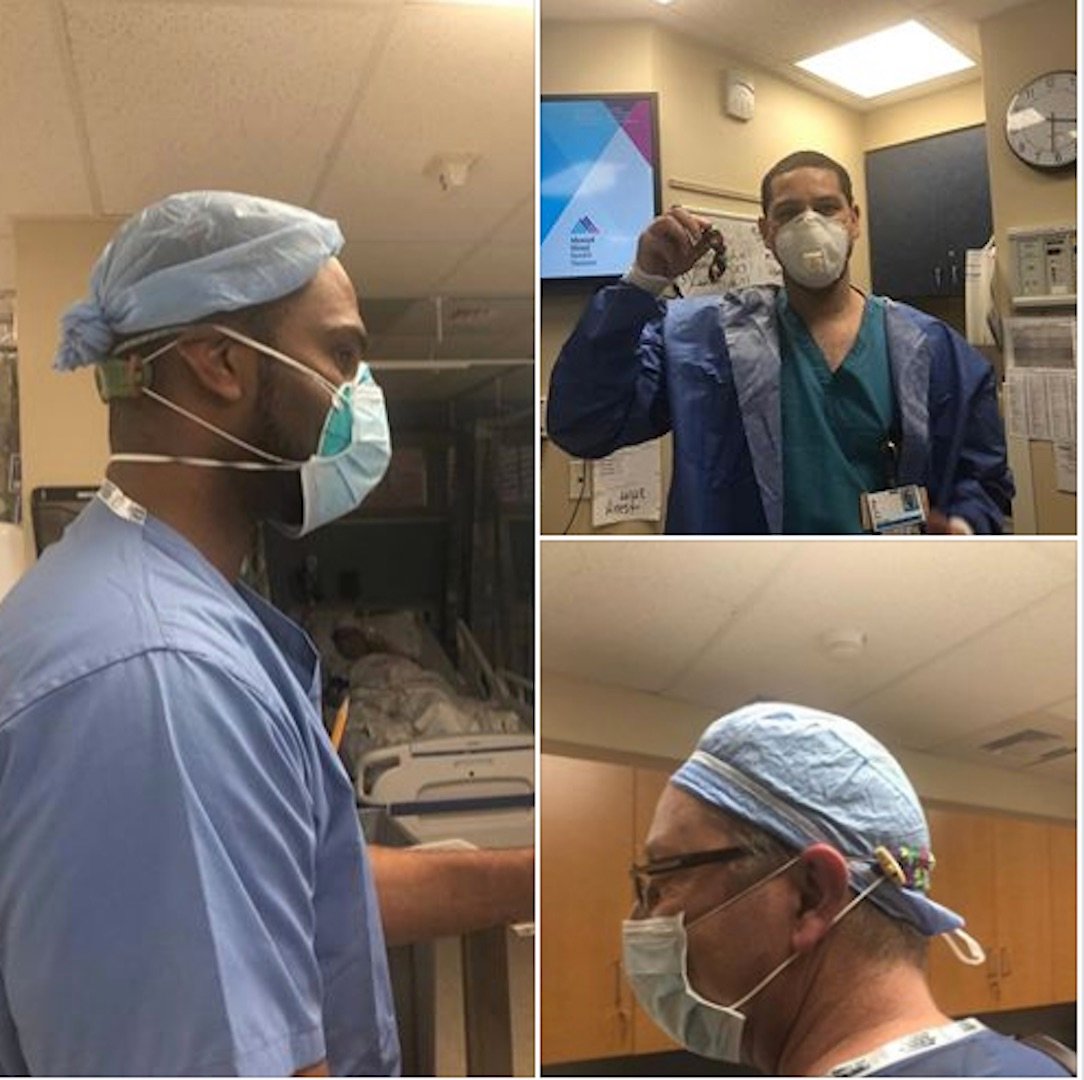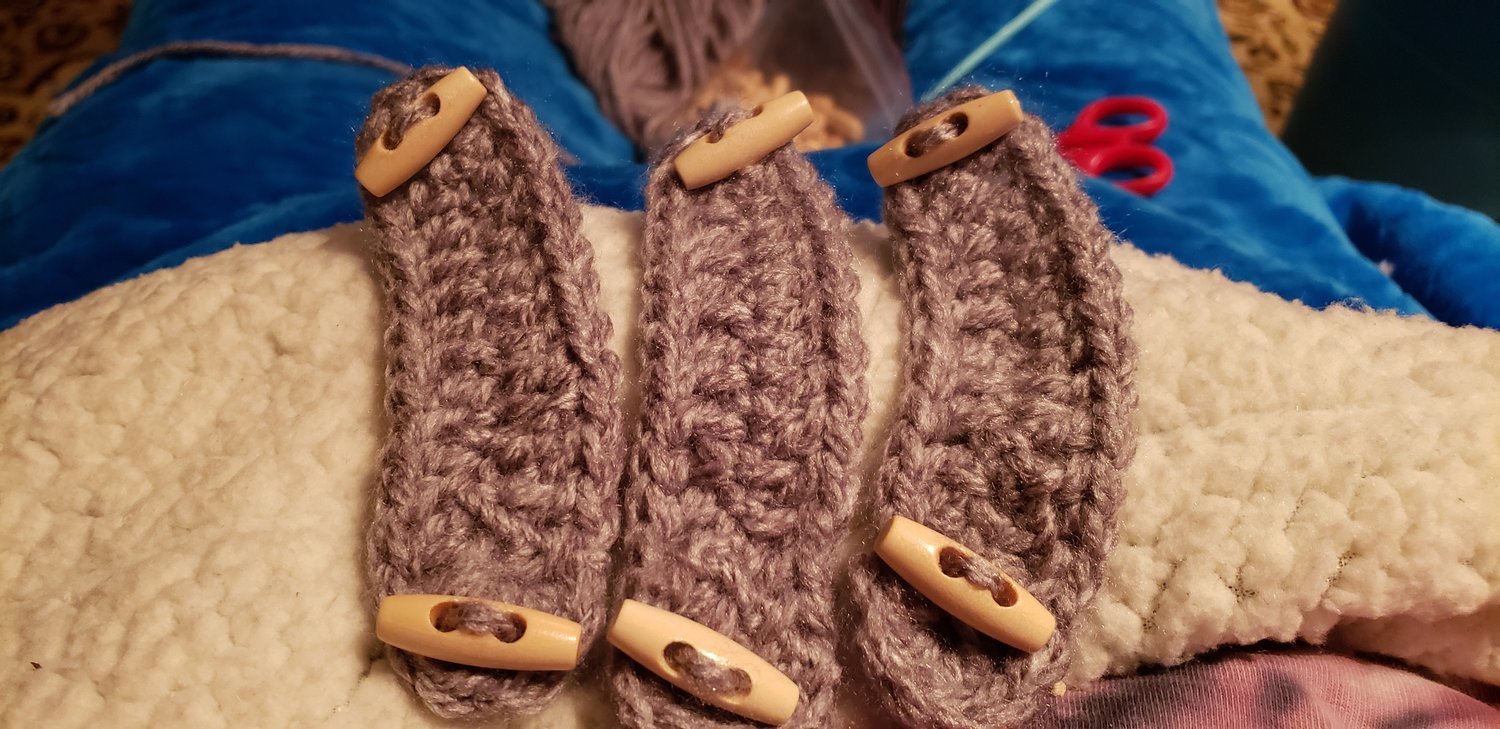Friday, April 19, 2024
Merokean makes ear guards for health care workers
Project creates a community of crocheters 'stitching' in
Merrick resident Syndi Reibman began crocheting in 1993 and hasn't stopped since. While she's cornered the market on baby beanies, scarves and other items, the coronavirus pandemic has given her a reason to learn a new stitch.
"When I saw someone making ear guards on one of my crochet groups on Facebook, I immediately realized that I could make them and help health care and essential workers," she said.
Reibman's hand-crocheted ear guards are between three to six inches in length and have a button sewn on each end. The buttons are used to hold the elastic band of a face mask in place, thus alleviating discomfort for those working long shifts.
"If I can enable them to wear their face masks with less pain and discomfort on the backs of their ears," Reibman said, "then it is something that I can do to help in my small way."
Reibman has crocheted 350 ear guards as of April 30, and plans to make a couple hundred more over the next few weeks. Her creations have been donated to Nassau University Medical Center and NYU Winthrop Hospital through the Bellmore-Merrick Helping Our Heroes group. Additionally, she has mailed ear guards to health care workers in Florida, Colorado, New Jersey, Connecticut and throughout New York state.
Reibman used social media to ask others for help, creating a network of crocheters community-wide. One of her neighbors is sewing buttons on the ear guards, and a Facebook friend is "stitching" in, too.
After her post "begging for buttons" was re-shared on Facebook, Reibman received buttons from people in other parts of the state, as well as California, Texas, North Carolina and Pennsylvania.
"I have received [buttons] from old high school friends, friends of friends, family members, and, honestly, some are from strangers," she said. "I have no idea how they got my address, but I send out a thank you and keep on crocheting!"
Packaged with one of the deliveries was a letter from a woman in Texas, who donated her late grandmother's button collection to Reibman's effort. "She said she would love to know that these buttons went to a health care worker," Reibman said. "Everybody's reaching out and it just blows me away."
HELP SUPPORT LOCAL JOURNALISM
The worldwide pandemic has threatened many of the businesses you rely on every day, but don’t let it take away your source for local news. Now more than ever, we need your help to ensure nothing but the best in hyperlocal community journalism comes straight to you. Consider supporting the Herald with a small donation. It can be a one-time, or a monthly contribution, to help ensure we’re here through this crisis. To donate or for more information, click here.
Sponsored content
Other items that may interest you








